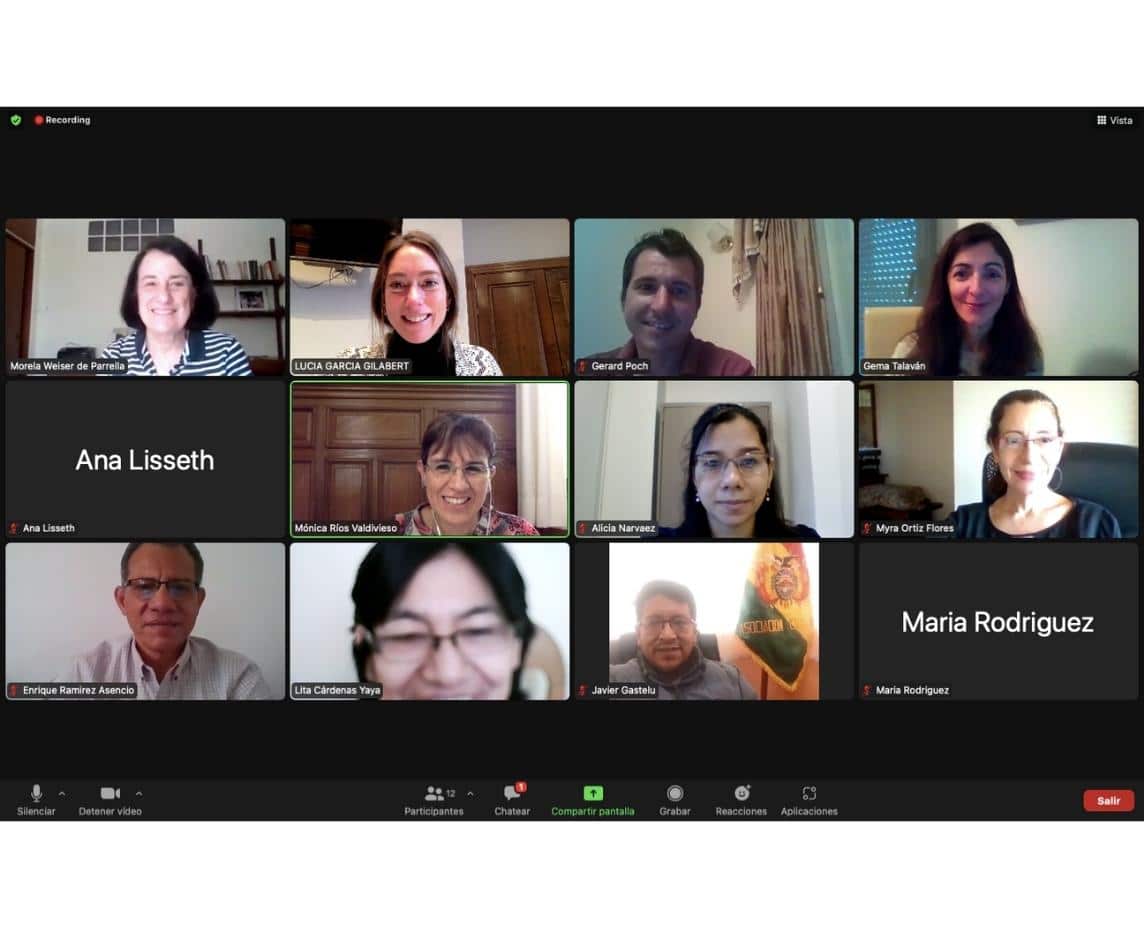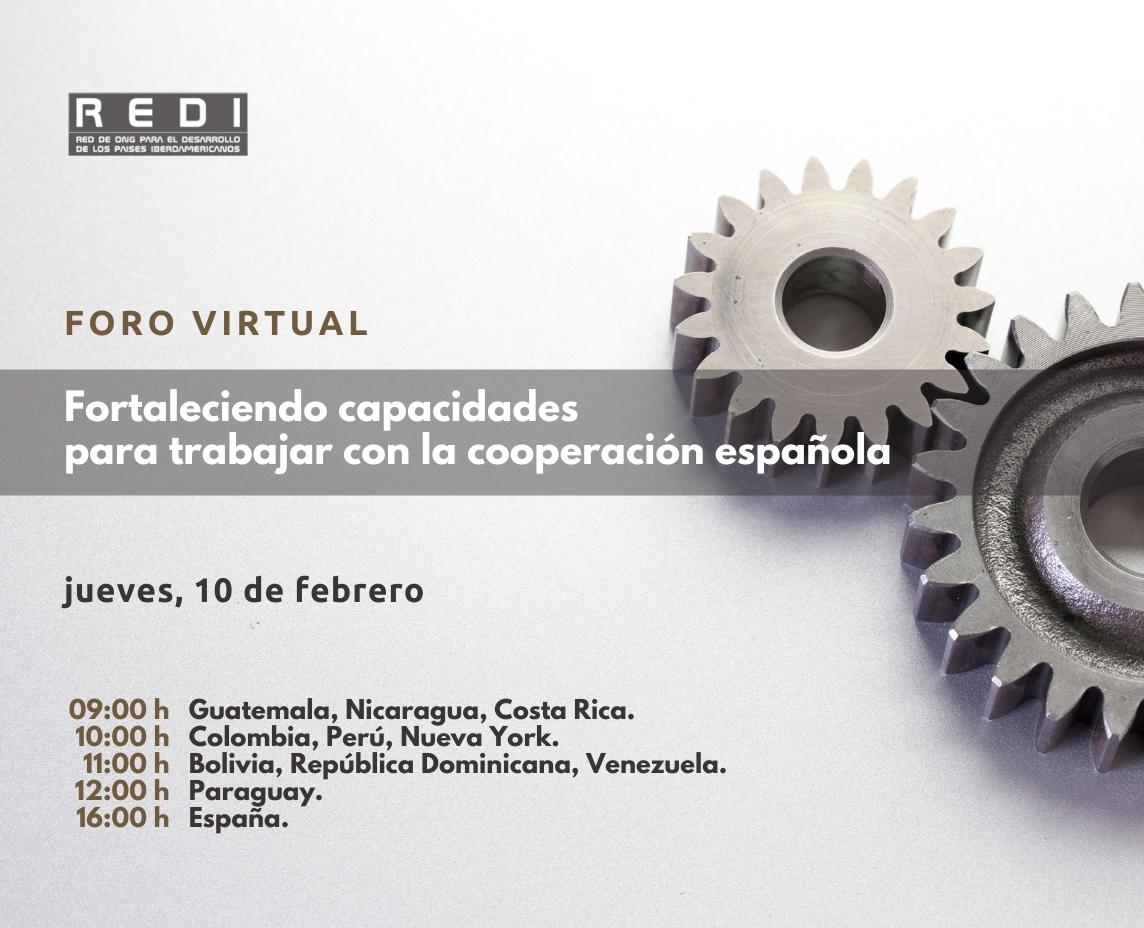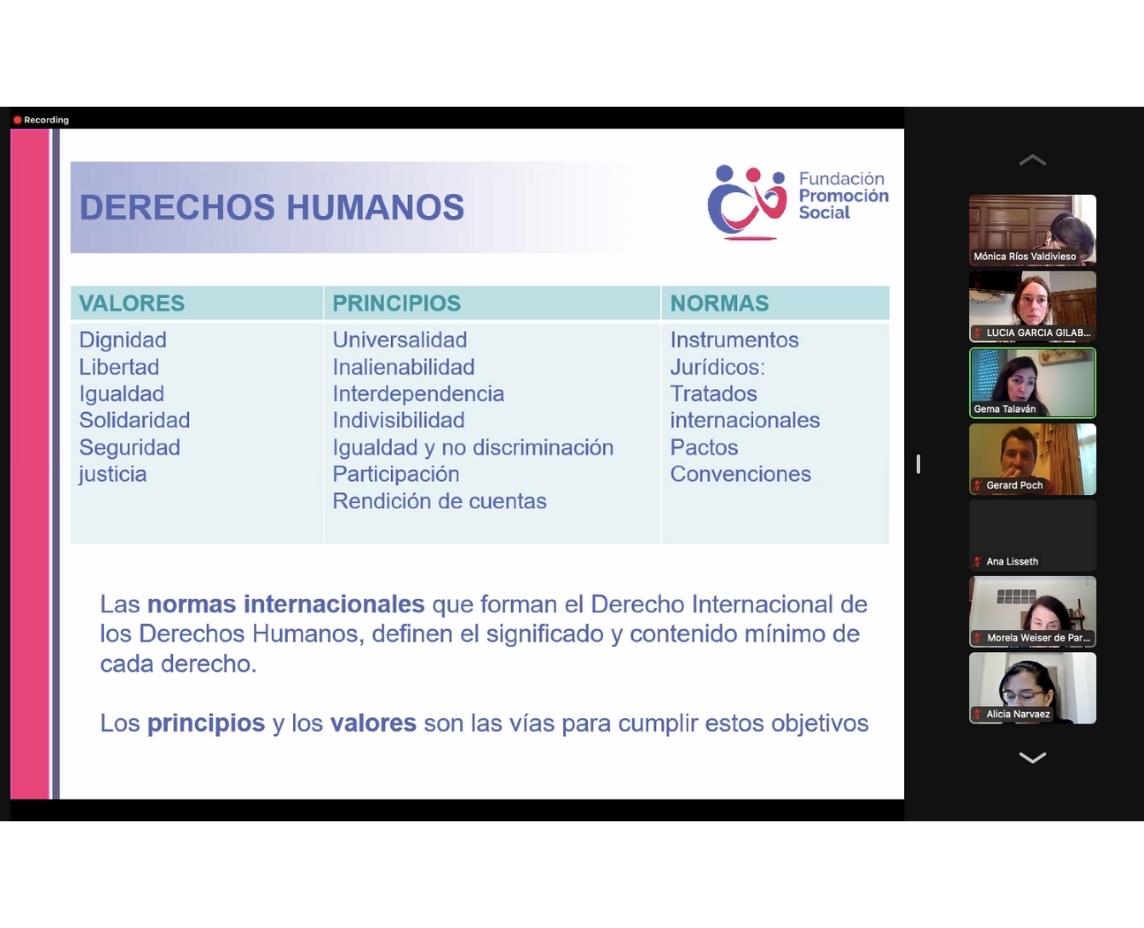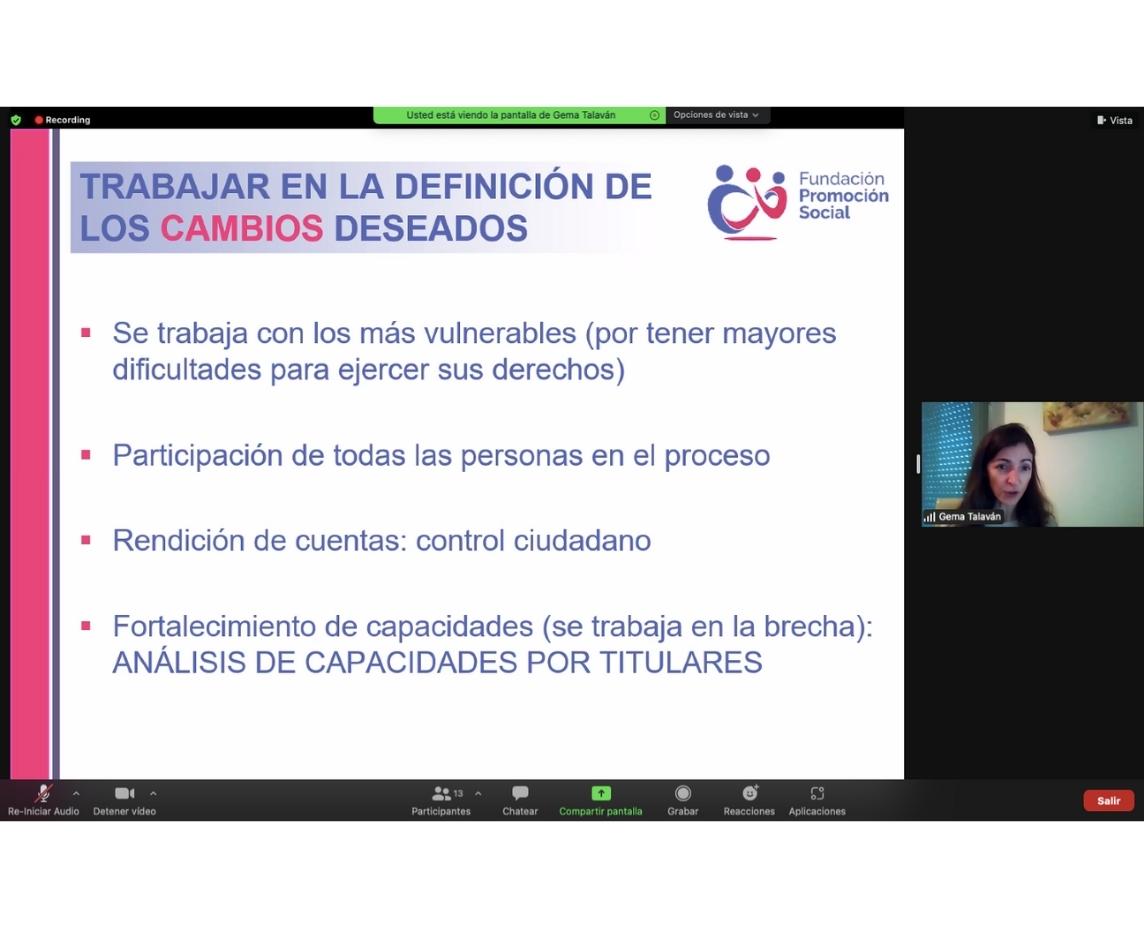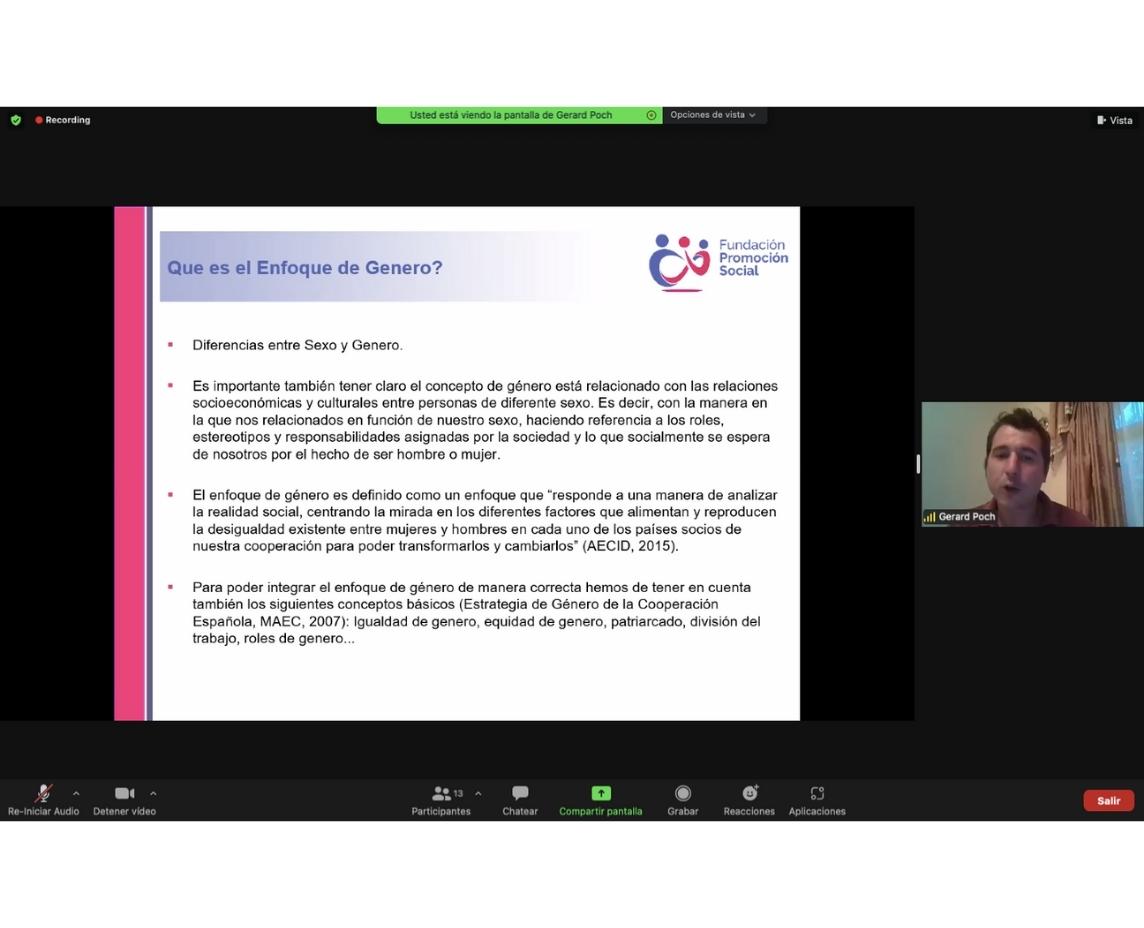One of the main objectives of the Network of NGOs for the Development of Ibero-American Countries (REDI), of which the Social Promotion Foundation is a part, is the transfer of experiences and good practices among its partners, to promote cooperation between organizations that work for human and social development.
To this end, Social Promotion led the webinar “Strengthening capacities to work with Spanish cooperation”, organized by REDI on February 10.
The objective was to share their experience of working in cooperation, talking about the rights approach, the gender perspective and transparency and communication on the web, to try to strengthen the capacities of the partners in these key elements for Spanish cooperation.
The session was opened by Gema Talaván, development cooperation project technician at Headquarters, addressing the issue of the rights-based approach. She began her presentation by emphasizing general aspects of it and the need to adopt a holistic view that takes into account the context and aspects of people. Likewise, she delved into human rights (values, principles and norms), the supervisory bodies that guarantee them and the causes that violate them. In addition, she pointed out the need to work on defining the desired changes. In a practical way, she stressed the importance of identifying the situation of the violated right (what is happening), doing an analysis of causality (why), of actors (who) and of the capacity gap, and identifying an action strategy. Likewise, she provided a bibliography on human rights and showed what its principles are and what they mean in practice.
Gerard Poch, head of mission for Social Promotion in Ethiopia, addressed the gender perspective, giving an answer to what it is, what its origin and evolution is, and how it has been incorporated into Spanish development cooperation. Likewise, he highlighted why it is important to incorporate it into development cooperation programs and/or actions, and, in this process, its characteristics are the main challenges faced by Spanish cooperation. He ended his presentation by giving some general guidelines for mainstreaming the gender approach.
Finally, Lucía García, Communication staff at the Foundation, made an analysis of transparency on the web according to the criteria of the public calls for Spanish cooperation. And as a practical example, she showed the structure of the Foundation’s website and the information collected on it to comply with the demands of Spanish Cooperation in this regard, as a response also to the socialization and accountability of NGOs.





